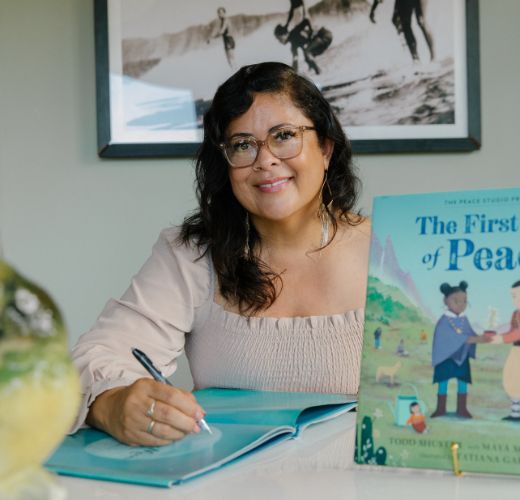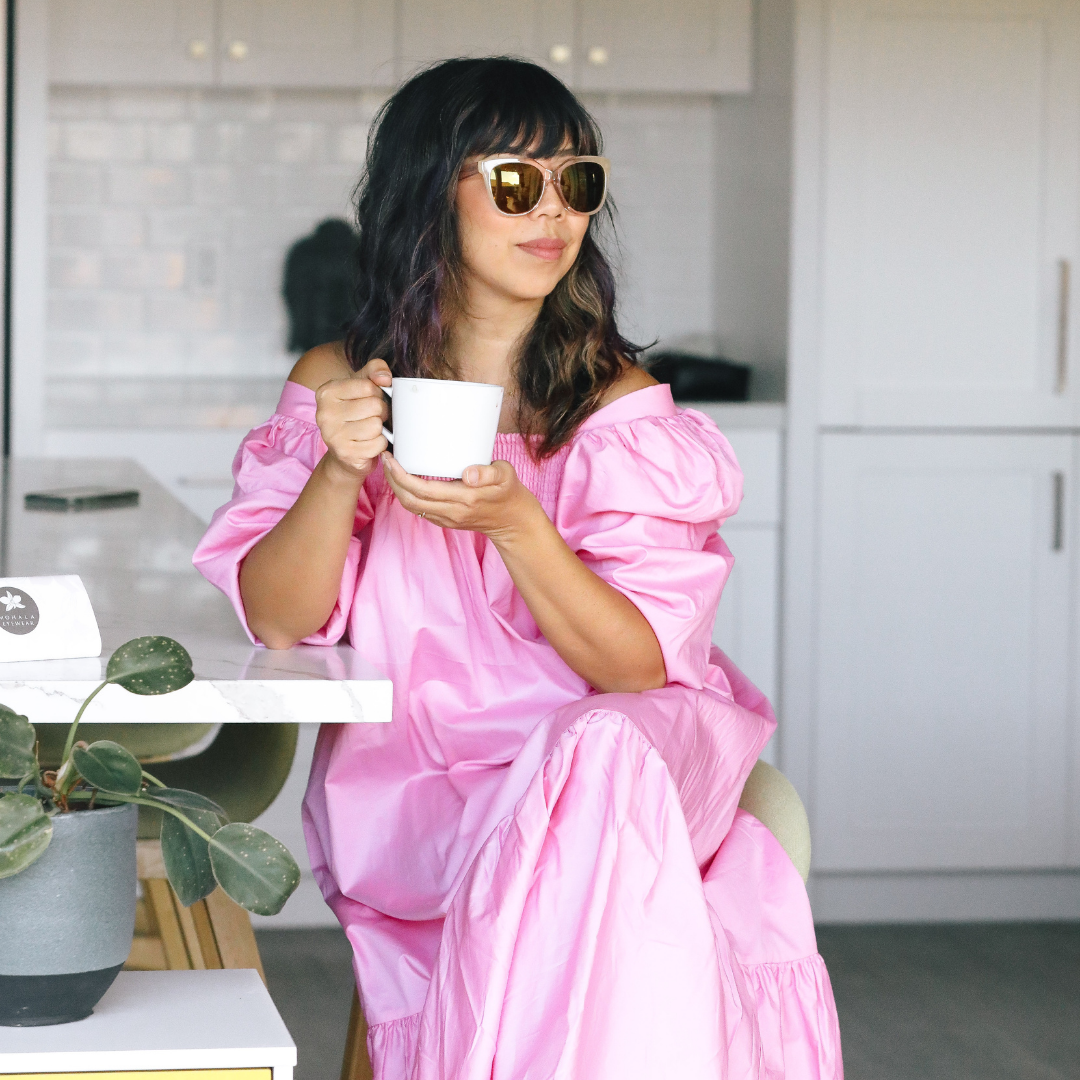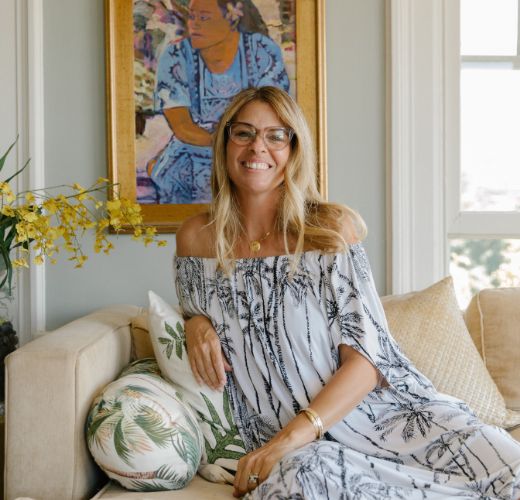
Peace activist, founder, author and breast cancer survivor Maya Soetoro - shares how to live a life with intention.
Why are you passionate about peace building?
It's clear that there is too much violence and trauma in our world, but I have also seen enormous courage, compassion in action, and unlikely love in the world. I would like each and every one of us on this planet to decide to build peace from wherever they are. Regardless of age, status, or profession, each of us can build peace within (personal peace), peace between (interpersonal peace) and peace in service to others (community peace). When we move from aspirational peace to action, we activate our sense of possibility and determination. We find antidotes to the grief that can make us feel stuck and hopeless. Each of us has a potentially powerful role to play in planting the seeds of justice and peace for ourselves and others. Many of us just need encouragement to wash our eyes, refresh our gaze, and see ourselves and the peaceful paths ahead with greater clarity.

What inspired you to start each of your non-profits?
I started Ceeds of Peace with Kerrie Urosevich to create space and offer resources for educators, family members, community leaders, and youth to develop collaborative peacebuilding action plans to make their communities more just, healthy and harmonious. We offer professional development to educators in order to make systemic impacts in schools and bridge communities and schools, and we encourage youth to develop upstander identities so that they will be leaders for positive social change.
I started the Institute for Climate and Peace with Maxine Burkett to address the climate crisis by uplifting frontline community sourced solutions that blend ancestral wisdom with futures innovation. We recognize the need to work at the intersection of climate, peace, and justice and see that the communities that are most impacted by the climate crisis are also in possession of many of the powerful solutions for climate adaptation, disaster prevention and environmental healing,
I started the Peace Studio with Jennifer Gates and Todd Schuster to help artists and journalists thrive as catalysts, activists, and peacebuilders. We have robust programming and curriculum to work with journalists to tell restorative narratives and bring artists together to co-create art that makes their communities more peaceful, just and resilient.

How did you get into becoming an educator? What do you enjoy most about teaching?
I graduated from NYU's College of Education and my first job was working at an alternative public community middle school on Manhattan's Lower East Side. Through connecting with supportive organizations like Facing History and Ourselves, Teaching Tolerance, and others, I realized that the true value of education was making young people reflect deeply, feel and find their purpose in community. Growing up all over the Pacific-Asia. region, I also sought to give my students a sense of global awareness and broad empathy so my teaching often focused on multiculturalism, social justice, and the promotion of peace and justice.

What inspired you to write the two children’s books you wrote?
I was inspired to write children's books by my desire to share the wisdom of interconnected learning, intercultural understanding, and collaborative problem solving. I recognized the importance of instilling leadership and bridge-building values in young minds, and writing children's books provided a creative and accessible way to do so. Stories help us to empathize and young people learn better through stories than pedantry. When we know others' stories, it becomes easy to embrace diversity and work toward a more harmonious world.

If someone is interested in getting into meditation but doesn’t know how to start what do you recommend?
Start with the basics: Begin with short, simple meditation sessions. Five minutes of watching things in motion, using all of our senses, progressive body relaxation, using a touchstone or mantra can be effective for increasing personal peace. Match your breath to the rolling in and out of waves. Look up through the branches of trees at the clouds above. Walk as slowly as you can and feel the breeze or sun on your skin. Or create your own five minute meditation. As you walk or sit for these few minutes, let go of thoughts. Just say to yourself "release" or "letting go" When thoughts come to mind, acknowledge them without judgment and gently bring your focus back to your breath or whatever else you choose to be mindful of. You can also explore guided meditation apps or recordings to help you get started and learn different techniques. Be patient with yourself as meditation is a skill that takes time to develop. Don't be discouraged by a monkey mind; it's a natural part of the process and it will get easier and easier soon.

What are you best tips about motherhood?
Be open to learning from your children. My daughters are my best teachers. In some ways, they are very much like me but in other ways they are so different. Be curious about the ways they are different and appreciate their genius when it does not resemble yours. Foster open and honest communication with your children to build trust and understanding. I tell my daughters a lot about my life (I save the tough stuff for when they are developmentally ready, of course) I also ask them for their stories. I strive to model empathy and kindness and servant leadership for them and tell them these are the nonnegotiables, and then I give them freedom of choice and expression in other ways (my daughters have enjoyed many different hair colors). I promote multicultural awareness and strive to share different cultures and perspectives to instill a sense of global empathy. I don't tell them what they should find interesting but I try to encourage a love of learning and curiosity by giving them many choices for activities to pursue. I strive to create a peaceful home environment in the relationship I have with their father and in expressing my deep love in numerous ways.

What is your best advice on how to support a friend through cancer?
I'm a breast cancer survivor and have been supporting other folks with cancer and it has become an important part of my community identity. Educate yourself about the type of cancer your friend is dealing with, its treatments, and potential side effects. This can help you better understand their situation and provide more informed support. You might read "Radical Remission" about those who have beat cancer against the odds. Offer emotional support and be a compassionate and empathetic listener for your friend. Let them express their feelings and concerns without judgment. Provide practical assistance. For instance, offer to help with daily tasks like cooking, cleaning, or running errands to ease their burden. Respect their choices. Your friend may explore different treatment options, including conventional and alternative methods. Support their decisions and respect their autonomy. Keep them engaged. Encourage activities and hobbies that bring joy and distraction, as this can be a valuable source of emotional support. Remember that supporting a friend through cancer can be emotionally challenging, so make sure to take care of your own well-being as well.


